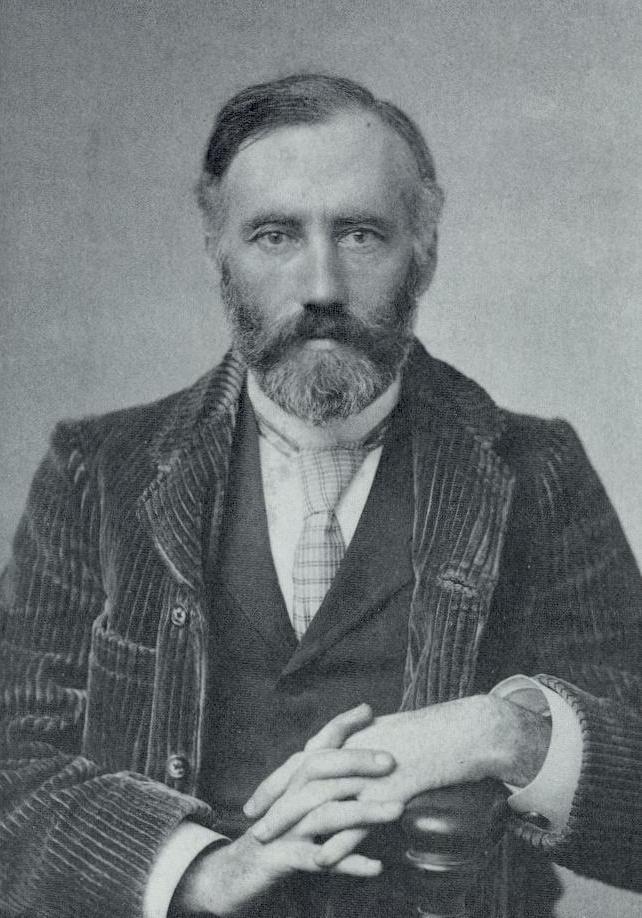A remarkable article, published in Slate magazine. Note the panic-mongering, perhaps real panic, of the author. Note also the implicit calls for censorship. And while this particular piece isn't about QAnon, it's easy to make comparisons...
The blog to end all blogs. Reviews and comments about all and everything. This blog is NOT affiliated with YouTube, Wikipedia, Microsoft Bing, Gemini, ChatGPT or any commercial vendor! Links don´t imply endorsement. Many posts and comments are ironic. The blogger is not responsible for comments made by others. The languages used are English and Swedish. Content warning: Essentially everything.
Wednesday, September 30, 2020
Tuesday, September 29, 2020
Sveket från Mona Sahlin
Monday, September 28, 2020
Will the real Buddhism please stand up?
Imagine being an adult and not understanding this. This is how *all* religions evolve. Buddhism is no exception. Indeed, for all we know, Buddha didn´t even exist. Now, that´s a fine theme for meditation!
The lockdowns may have been a huge mistake
The lockdowns may have been a huge mistake
No fuck?
Unless, of course,the point of the lockdowns was never to stop the virus but to manage the crisis in such a way as to ensure the best possible outcome for certain interested parties.
Say, Democrats who want to crash the economy to get rid of Trump, giant corporations looking for an excuse to get "bailed out" (with a bonus), the Federal Reserve looking for an excuse to print trillions of (worthless?) paper money, giant corporations (again) eager to destroy small businesses by way of the lockdowns, Democrats (again) eager to replace voting-in-person, and God knows what else. A trial run for martial law?
Note also that the Democrat stormtroopers, "BLM" and Antifa, are de facto exempted from the curfew, not to mention Nancy Pelosi´s fantastic hairdo!
Mistake? I don´t think so!
Why Trump doesn´t just "send in the troops"
Could become obsolete in six weeks, but here is the article by Kurt Schlichter (a well known Trump supporter) explaining why Trump doesn´t just "send in the troops" to smash the anarchist riots still underway in many cities around the US.
Vänta, jag trodde Wolodarski hade det här under kontroll?!
Veckans Strasser
Nedanstående krönikor i Expressen kan sammanfattas på följande sätt: Enda sättet att "bryta populistvågen" är att ersätta högerpopulismen med vänsterpopulism. OK, tack för påminnelsen (skrockar illavarslande).
She didn´t have the Corona Mindset
Topless voter shocks New Hampshire poll workers
If you can strip in person, you can vote in person. Case closed! And yes, the woman was wearing (or rather *not* wearing) an outfit like the one pictured above.
OK, don´t tell me. Mail-in voting? LOL
"Trans-Satanist-anarchist" wins GOP nomination for county sheriff
Maybe he should have run in the Democratic presidential primaries instead? Looks like an excellent running mate to John Kasich!
But QAnon is a "collective delusion", amirite?
UN chooses teen prostitution advocate for top human rights post
Offered completely without any comments.
Alan Watts is the man
Samsara: The Last Unenlightened Person on Earth
The link above goes to a short story titled "Samsara". I admit that I didn´t entirely get it, but then, I´m not a Californian Buddhist, LOL. More specifically, I didn´t understand why a Ferrari would make somebody enlightened? Some weird reference to the Beat poets I don´t understand or what? Still, if Western Buddhism is your cup of Chinese tea, this little piece of creative fiction might be of some interest...
None shall freeze or starve
Brazil hands out so much covid cash that poverty nears a low
This has to be the single most unexpected outcome of the corona pandemic. Brazil´s right-wing president Jair Bolsonaro has angered the local and international capitalistas by handing out so much money to the poor that poverty levels are now *lower* than under the previous left-wing administration! Of course, the whole thing smells of vote buying and "Winterhilfe", but it´s nevertheless interesting that Bolsonaro is doing it, while leftists in many nations have sold out to the globo-liberals (read: spending cutbacks). 2020 increases...
Fula fiskar
 |
| Amazons VD Jeff Bezos (världens rikaste man) |
Sossarna har just släppt in de här typerna i landet. På engelska.
Inside Amazon´s secret program to spy on workers´ private Facebook groups
Kommer snart till en bruksort nära dig
Det här företaget kommer snart till Sverige. Det ägs av världens rikaste man och har stenhårt utnyttjat coronapandemin för att berika sig ännu mer. På engelska.
Amazon is hiring an intelligence analyst to track "labor organizing threats"
When the domestic terrorist becomes the voice of reason
Derrick Jensen is one of the leaders of Deep Green Resistance (DRG), a very extreme fringe group which explicitly calls for terrorism on a *massive* scale to bring down modern civilization. Less explicitly, this means that DRG want to genocide most of the human race.
So how come the Californian left only react when Jensen exposes pedophilia?!
What the heck is wrong with these people...
At least they taught us yoga
OK, yet another Sadhguru extravaganza. In this clip, the controversial Hindu teacher actually criticizes the idea that aliens created human civilization. Fans of "Ancient Aliens" and Erich von Däniken won´t like this one! However, in other clips, Sadhguru claims to have met aliens himself in Tibet close to Shiva´s holy mountain Kailash. He also claims that Shiva may have been a space alien! Am I right in suspecting that this kinds of contradictions are the sport of the Tantric master...?
Was God an astronaut, after all?
Two clips featuring Sadhguru, a colorful Hindu guru based in the Indian state of Tamil Nadu. He seems to be a slightly more civilized version of the late and unlamented Osho.
Sadhguru claims that Shiva is both the Absolute and a mysterious incarnation of the same that appeared on Earth 15,000 years ago. This Shiva was also known as Adiyogi and taught the science of yoga to seven rishis who then spread it around the world. I get the impression that Sadhguru really does believe that Adiyogi was a space alien! He seems to be a character similar to the Watchers or the Nephilim in UFO lore freely inspired by the Book of Enoch.
There are also "aliens" in Lake Manasarovar in Tibet, close to Kailash, the holy mountain of Shiva. However, these aliens seem to be more like typical spirits and can even possess humans during meditation.
Not sure what to think of this material, so I´m just gonna leave it here...
When Sadhguru met the aliens
Sadhguru (Jaggi Vasudev) is a flamboyant Hindu guru, based in Coimbatore in southern India. I don´t quite understand the man´s philosophy, but it seems to be a mixture of Shaivism, Tantrism, Osho and weird speculations about Shiva or "Adiyogi" being an alien! Often seen driving an expensive Tesla car, or giving interviews to the media in Mumbai, Sadhguru also has a more somber side.
In the clip above, he and some followers have travelled to Manasarovar Lake in the Himalayas, close to Mount Kailash, a mountain associated with Shiva. The location is apparently on the Chinese side of the border. Sadhguru claims that there are "aliens" in the lake, and that they really are from outer space. To me, the whole thing looks like a slightly shamanistic possession ritual. Before the modern UFO craze, whatever strange "beings" may exist in Manasarovar would of course be seen as guardian spirits of said lake, not as aliens from another world.
Still, an interesting reimagining of an ancient tradition. And perhaps a genuine paranormal phenomenon?
Ett nytt akademiskt forskningsprojekt?
En sak slog mig just. De senaste fem åren verkar konspirationsteorierna i USA ha ändrat karaktär. Åtminstone två av dem.
Den ena är QAnon. Jag har inte fördjupat mig *så* mycket i denna "teori", men det verkar som att QAnon delvis fungerar som ett Rorschach-test eller ett bricolage. Ett smörgåsbord, kanske? Alla kan utifrån Q:s kryptiska ledtrådar skapa sig en helt egen liten konspirationsteori. Är QAnon den första postmoderna konspirationsteorin? Har konspirationsteorierna demokratiserats, eller vad?
Den andra "teorin" jag har i åtanke är Rysslandsnarrativet. Alltså det (helt obevisade) påståendet att Trump på något sätt samarbetar med ryssarna. Men på vilket sätt? Denna konspirationsteori har den märkliga egenheten att den verkar oändligt elastisk. Om det inte går att bevisa att ryssarna bokstavligen hackade valmaskinerna med Trumps goda minne, kan man alltid hävda att de infiltrerade Facebook, tog över Wikileaks, kavorterade med Donald Trumps nästkusin via ombud, eller vad som helst. Kort sagt, den fungerar som förljugen retorik brukar göra. Men samtidigt verkar den faktiskt spela rollen av just en konspirationsteori, och man undrar onekligen om den fyller samma slags psykologiskt behov för "liberaler" som QAnon gör för vissa populister.
Konspirationsteorier är ofta extremt komplexa, men här har vi ett exempel på en teori (QAnon) som visserligen är komplex, men som samtidigt inte är helt beroende av en "gnostisk" auktoritet som förklarar alla komplexiteter von oben. Det kan du göra själv. Vi har ett exempel på en annan teori (Ryssland) som är i stort sett helt beroende av auktoriteter (ofta nyhetsankare i "liberala" medier), och som verkar kunna varieras i det oändliga utan att de troende reagerar.
Låter som ett intressant ämne för en akademisk avhandling...
Sunday, September 27, 2020
Några tankar om Trumps Amerika (del 3)
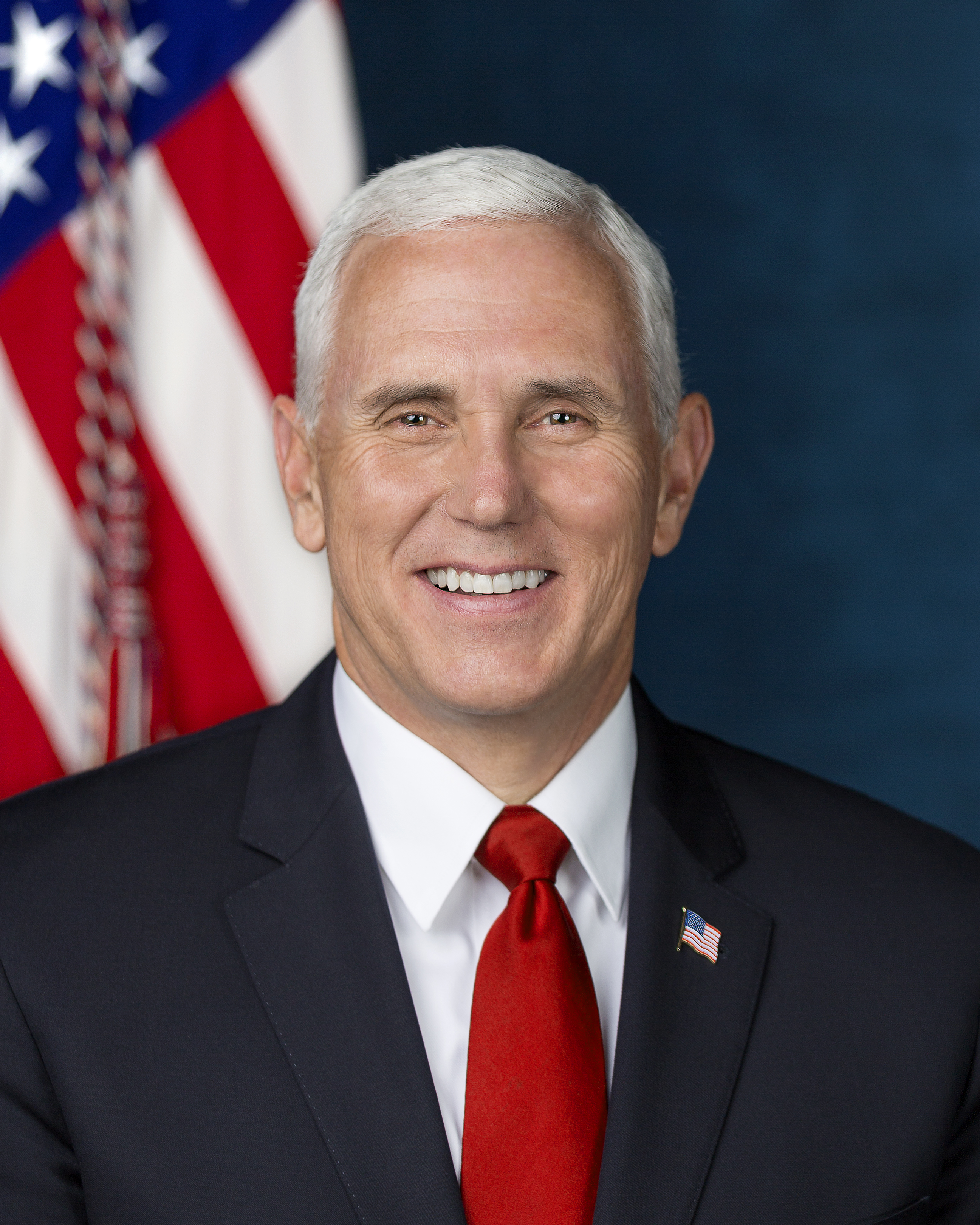 |
| USA:s vicepresident Mike Pence |
Ytterst handlar konflikterna kring Trump om globalismen och dess framtid. Trumps motståndare är globo-liberaler för vilka "USA" helt enkelt är ett exekutivt organ för globalismen, med amerikanska militären som världspolis. Trump representerar antagligen en mer nationalistisk linje där USA snarast ska vara en självständig aktör med en egen kapitalistklass. Det förklarar betoningen på konflikten med Kina, som är taktiskt allierade med globalisterna. Motståndet mot Kina går dessutom att kombinera med populistisk demagogi på hemmaplan. I en viss bemärkelse kan man ju säga att samarbetet med Kina "hotar amerikanska jobb". Ryssland hotar ingen särskild i Middle America. Men Trump har trappat upp även mot Ryssland och deras allierade Iran.
Idag verkar det gamla etablissemanget trots allt ha vunnit en tillfällig seger. "The corona bail out" innebär ett massivt federalt stöd till storföretag och banker, vilket givetvis stärker den administrativa staten och dess symbios med näringslivet. Detsamma gäller nedstängningen av samhället under coronapandemin. Statsapparatens åtgärder har omfördelat enorma resurser från småföretag och vanligt folk till storföretagen. "The bail out" röstades igenom enhälligt av hela kongressen, alltså både demokrater och republikaner. Ändå har Trumps motståndare *ökat* sina ansträngningar att få bort honom! Antingen uppfattas Trump fortfarande som opålitlig (skolorna eller tech-bolagen kan bli hans nästa måltavla), eller så vill man straffa amerikanska folket för att de röstade "fel", helt enkelt för att visa vem som egentligen bestämmer.
Ytterligare en faktor som förklarar de ökade motsättningarna är att USA inte längre är en supermakt, och absolut inte världens enda. USA är en stormakt på dekis. Ryssland och Kina är på uppgång. Indien och Brasilien vill gärna vara med och spela också. Systemet har inte längre något manöverutrymme. Det är svårt att tänka sig att en konflikt om t ex federala anslag för 20 eller 40 år sedan skulle ha urartat till något som närmast liknar interna oroligheter i någon bananrepublik. USA:s minskade makt på den globala arenan förklarar ett av de mer bisarra inslagen i maktkampen, nämligen påståendet att Trump "samarbetar med Ryssland". Detta är i själva verket en konspirationsteori, ett slags liberal version av QAnon. Den uttrycker eliternas rädsla för att USA inte längre är number one, och att Trump nog inte är den som kan göra American Empire great again. How ironic.
I grunden kan man alltså se konflikterna mellan Trump och hans motståndare som en dragkamp mellan globo-liberalism och nationalism, där globalismen antagligen kommer att förlora så småningom. Det betyder tyvärr inte att situationen nödvändigtvis blir bättre när nationalismen avgår med segern. Eftersom USA trots allt är en stormakt kommer dess nationalism tendera åt det imperiala hållet. Det gäller särskilt i ett läge där rena resurskrig kommer att bli vanligare. Ur Danmarks eller Grönlands synvinkel spelar det antagligen mindre roll om USA ockuperar Grönland av globalistiska eller nationalistiska orsaker! Och även om lönerna i USA först ökar p g a stoppad invandring, kan de ju minska senare av andra orsaker. Under en övergångsperiod kan man ju rentav tänka sig att USA fortsätter med globalismen, men nu med Indien som det prefererade låglönelandet snarare än Kina.
Trump är alltså inte "lösningen". Han är VARNINGEN. Trump är världshistoriens största felmeddelande. Problemet är att etablissemanget istället för att byta program har valt att radera felmeddelandet. Eller så att säga skjuta budbäraren...
Och det kanske inte är det smartaste draget.
Några tankar om Trumps Amerika (del 2)
.jpg) |
| Demokraternas presidentkandidat Joe Biden |
Eftersom Trumps populism egentligen är en ren manöver, en hävstång för att äntligen nå den åtråvärda presidentposten, undrar man varför inte resten av etablissemanget helt enkelt försöker köpa över honom? Faktum är att detta verkar ha varit GOP:s strategi, sedan det stod klart att Trump inte gick att stoppa. Demokraterna har däremot aldrig accepterat Trumps valseger, utan ständigt försökt sabotera och underminera hans administration, på ett sätt som den senaste tiden kommit farligt nära ett kuppförsök. Och många även inom GOP-apparaten verkar ha tröttnat på den egensinnige presidenten. Men varför, egentligen?
Trumps plattform från 2016 hade, om den genomförts, hotat hela det nuvarande systemet. Både demokraterna och GOP:s mittfåra är för massinvandring eftersom detta trycker ner lönenivåerna. Demokraterna kan dessutom importera röstboskap. Den globala marknaden samt samarbetet med Kina trycker också ner lönenivåerna i USA och försvagar den traditionella arbetarklassen. USA skulle helt enkelt inte kunna vara den avindustrialiserade ekonomiska frizonen för "tjänste- och informationssektorerna" som man är idag om Trump skulle driva igenom hela sin plattform (som egentligen är Steve Bannons plattform).
Trump varken kan eller vill driva igenom sitt maximiprogram, men systemet är tydligen så bräckligt att etablissemanget inte ens klarar av att hantera en fejkad populist. För att bli vald piskade Trump upp stämningarna och öppnade på så sätt Pandoras ask. För att bli återvald har han manövrerat i olika frågor, och detta manövrerande verkar i sig själv hota stabiliteten, särskilt som Trump som person är minst sagt lynnig. Även om Trump skulle sluta som en ny Bush eller Obama så visade hans valseger att det faktiskt är möjligt för en "galen" populist att bli president. Någon annan hugad spekulant skulle ju kunna dra den slutsatsen i framtida presidentval...
Trump uppfattas antagligen som ett hot mot "den administrativa staten" och dess relativa självständighet. Han har dragit ner de federala anslagen till diverse myndigheter, upphävt regleringar, och försökt avskaffa Obamacare. Vidare har han utmanat domstolarna, som givetvis vill ha makt att på egen hand fatta politiska beslut. Domstolarna är alltså en del av den administrativa staten. Även Trumps attacker på medierna är en del av samma kontext. Medierna är en gigantisk propaganda-apparat knuten till just den administrativa staten. Eftersom byråkratin och medierna är "liberala" känner de sig självklart hotade av Trumps attacker på "politisk korrekthet". I framtiden skulle Trump mycket väl kunna attackera universiteten och högskolorna på samma sätt.
Kort sagt, Trump hotar den märkliga senkapitalistiska hybriden mellan vänsterliberal byråkrati och nyliberalt kapital. Åtminstone potentiellt. Och det räcker visst för att hans motståndare ska betrakta honom som en ny Hitler.
Fortsättning följer.
Några tankar om Trumps Amerika (del 1)
.jpg) |
| USA:s president Donald Trump |
En sak som faktiskt förbryllar mig är hur hård konflikten mellan Trump och dennes motståndare faktiskt är. Inte ens bråken mellan Obama och republikanerna antog *dessa* proportioner! Ändå har Trump faktiskt blivit *mindre* populistisk än han var (eller låtsades vara) 2016. Varför försöker inte etablissemanget att helt enkelt köpa över honom, eller krama ihjäl honom? Det fungerar ju på många andra...
Det har alltid förekommit konflikter mellan olika klickar i Washington DC, men någonstans har allting spårat ut. Min gissning är att urspårningen går tillbaka till finanskrisen 2008. Det var då etablissemangets olika falanger på ett mer fundamentalt plan började glida ifrån varandra. Jag antar att Obama kan sägas representera "den administrativa staten", medan republikanerna stod för det privata näringslivets intressen. Den som mest ihärdigt drev på försöken att sabotera för Obama var Ted Cruz, en värdekonservativ marknadsliberal från Texas. Att konflikterna trots allt inte slet sönder landet beror på att GOP:s huvudfåra egentligen inte har något mot den administrativa staten som sådan, så länge den gynnar storföretagen och storfinansen ("regulatory capture"). Jag antar att det nya med Obama var att statsbyråkratin under hans tid som president blev alltför självständig. Exempel kanske inkluderar miljöregleringar och "Obamacare". En annan likhet mellan demokraterna och GOP:s huvudfåra var stödet till USA:s krig och till det nya mäktiga säkerhetsministeriet DHS.
Som sig bör i en demokrati var det "folket" som gjorde att motsättningarna hårdnade. 2008 bars Obama fram av ett slags vänstermissnöje. Även republikanerna försökte manövrera gentemot ett folkligt missnöje, nu på högerkanten. Sarah Palin var en närmast klassisk "stolle" av ett slag amerikanska högerpopulister älskar. John McCain hade rykte om sig att vara en politisk fribytare och fritänkare. 2012 valde GOP att satsa på en "vanlig" kandidat, den notoriske opportunisten Mitt Romney, samtidigt som Obama hade kramat ihjäl sig själv. Under ytan fortsatte missnöjet att gro. På högerkanten i form av Tea Party, Breitbart News och rörelsen kring Ron Paul. Vänstermissnöjet dröjde till 2016 då det kanaliserades av Bernie Sanders.
Och sedan dök Donald Trump upp...
Jag är ganska övertygad om att Trump på den rent personliga nivån är ungefär vad han alltid varit: en skrupelfri affärsman med i bred mening "liberala" värderingar. Han är (eller har varit) bekant med både klanen Bush och familjen Clinton. I en annan dimension hade han säkert kunnat stödja dem fortfarande. Samtidigt är Trump extremt egotrippad och oberäknelig. Han antydde redan på 1980-talet att han ville bli USA:s president!
Och det blev han ju också efter en märklig valkampanj 2015-2016. Fortsättning följer!
Saturday, September 26, 2020
A skeptic against the stream
Hammer is a professor of religious studies and a rather hardline skeptic. His most well known book, "På spaning efter helheten" is a highly critical mini-encyclopedia of all things New Age. "Profeter mot strömmen" (Prophets counter current) deals with the historical background: Mesmerism, Spiritualism, Theosophy and New Thought. Hammer also takes us on a wild ride through the burned over district otherwise known as the United States. Mormons, Christian Science, Jehovah's Witnesses and Edgar Cayce are all in for a good whipping. There is also an excursion back in time to Paracelsus and Newton, and one taking us forward to Ariosophy and Anthroposophy.
I beg to differ on some finer points of interpretation (surely Origen believed in the soul's progress through reincarnation), and also on the author's "materialist" worldview, but overall, I say it's a fine study. The book is presented as a collection of free-standing essays, but I think it does have a fundamental unity. On a more humorous note, Hammer is honest enough to admit that he found Blavatsky's "The Secret Doctrine" almost impossible to read. He is probably not alone in this, although Bailey and Steiner are probably worse still!
Hammer also points out that new religious movements are strangely "tradition-less". They have often created a fake tradition around themselves, but otherwise seem to be creations de novo. What they never mention is their *actual* pedigree. The Mormons avoid discussing Swedenborg, the kabbala or Freemasonry. Anthroposophists hardly know who Blavatsky was, and Mary Baker Eddy denied any connection to Quimby (her real master).
One thing that struck me when reading "Profeter mot strömmen" is how little has truly changed in 200 years. The 19th century, the early 20th century and the late 20th century have remarkable similarities when it comes to alternative spirituality. It's all there: the interest in, and distortion of, Hinduism and Buddhism, the seances (today known as channeling), the alternative medical therapies, the strong women leaders, the bizarre cults and utopian social schemes, the apocalypse-mongering with its great disappointments, the scientific pretensions, the Nature mystics...
The "prophets" mentioned in this book aren't really swimming against the current, it seems! It's rather the poor skeptic who is somewhat out of joint...
Makes me wonder how long the show will go on? It feels like the world is long overdue for a *truly* new prophet...or at least a new Zeitgeist!
Friday, September 25, 2020
Det är någonting som inte stämmer...
En artikel från Expressen om hur coronapandemin har skapat en svår kris i Indien.
Eller kanske inte...
Om man läser artikeln noggrant framgår det nämligen att det inte alls är pandemin som orsakat krisen. Det är nedstängningen!
Är jag den ende som börjat misstänka att "medicinen" är värre än själva sjukdomen?
Ändå fortsätter nedstängningarna. Hmmm...
The Turkosphere scrambles for Africa
The geopolitical struggle is heating up all over the world. As the United States is becoming less and less capable of holding its grand alliance together, the usual fault lines are coming back with a vengeance. For instance, the Turkish attempts to create a Neo-Ottoman sphere in the Middle East and Africa, creating tensions with the Arab nations. The link below is to an article which argues that the US should support the Turkish ambitions in West Africa...
Why Turkey is making friends in West Africa
"Mass labor program" in Tibet
An article from Reuters about China's mass labor program in Tibet. A similar program also exists in Xinjiang and has led to accusations of "genocide" from Uyghur groups in exile. My impression is that we're dealing with a brutal attempt at industrialization and modernization, coupled with the usual "re-education" schemes. Which, of course, might be just as problematic, although a cynical Chinese bureaucrat might point out that the modernization of the West wasn't particularly "voluntary" either...
China sharply expands mass labor programs in Tibet
Tuesday, September 22, 2020
En oväntad vänstersväng
2020 har ju redan ett välförtjänt rykte som "tokiga året" par excellence. Och det verkar som att tokigheterna fortsätter! Jag tror tyvärr inte att *den här* presidenten kan bli grön, men vem vet, 2021 kanske blir ännu tokigare...
Soviet Amerika
Alaska could have ended history
An entertaining "alternative history" about what could have happened if Russia had hold on to Alaska. The funniest proposal is that Stalin's works would have been translated to Tlingit! Welcome to Londonsk, comrades...
Theosophy made in Denmark?
Martinus Thomsen (1890-1981) was a Danish spiritual teacher. He is usually just called Martinus. His supporters often refer to Martinus' worldview as "Martinus Cosmology". They seem to be heavily concentrated in Denmark and Sweden. Martinus Kosmologi should *not* be confused with Martinism, a French occult current named after the 18th century mystic Saint-Martin.
I haven't read all of Martinus' writings, (collectively known as the Third Testament) so the following review should be condidered preliminary. It's wholly based on the first volume of "Livets Bog" (The Book of Life), Martinus' seven-volume magnum opus. The first volume was originally published in 1932. The Swedish translation (and all others) have kept the Danish original title.
I think it's obvious that Martinus' cosmic worldview is really a form of Theosophy. It could be described as Theosophy minus the exotic pseudo-Hindu-Buddhist terminology. Theosophy in plain Danish, perhaps? Martinus claims that the work is the result of supersensible revelation. It was apparently first published with financial backing from a Danish Anthroposophist. I admit that Martinus, while boring, is a better and more lucid writer than Steiner (although I suppose Steiner's forbidding style could be an artefact of bad translation).
Everything in the universe is alive, including planets, stars and galaxies. Everything is also constantly changing and evolving towards higher forms of life and existence. Like in Theosophy, there are Masters, here called World Redeemers, but at least in this book, they are strangely anonymous. Instead, I get the impression that the cosmic evolution is wholly pantheistic and automatic, propelled forward by entirely impersonal forces. It's not clear to me if the souls really have freedom of will to opt out of the cosmic cycles (or speed up their own evolution).
That Martinus was very much a product of his time is obvious at several points in "Livets Bog". He strongly believes in the Western idea of Progress, including technological and scientific progress. Martinus also turns out to be a very literal socialist. The society of the future is a world government which owns the means of production and administers them through central planning. High technology will abolish all human wants and give everyone enough spare time for artistic and other pursuits. And yes, people will be paid in labor vouchers...
Martinus is no revolutionary, however. Instead, he supports what we would call a welfare state, and believe it should gradually expand its power over the economy. In fact, he seems very positive towards the state in general, perhaps because it's a collective and hence potentially collectivist organ. What is lacking is a concrete political program. Martinus states that the ideal world society won't be established until 3,000 years into the future by a new "cosmic impulse".
Another tendency visible in the book is the idea that all competing worldviews are really part of the grand cosmic plan, and represent distinct stages or functions along the way. Martinus can therefore sound surprisingly positive when discussing Catholicism, Islam, "idolatry", materialistic science or secular socialist movements. An integral theory if I ever saw one! However, there is also a strong dose of condescention towards those not spiritually enlightened enough. They should be forgiven since they simply don't know better, and even their incomprehension is somehow necessary in the bigger scheme of things.
The central idea of "Livets Bog" is that evil is inevitable, necessary and wholly integrated into the divine plan. Evil doesn't seem to be an illusion (like in ACIM), but everything in the cosmos is "wholly good" in the sense that evil and suffering is what makes the souls turn towards the light in the first place. Creation itself has two phases, with the "dark" phase being the first, devolving the souls more and more into dense matter and individuality. The fall of man is the moment when humans become conscious of their "animal" suffering, while not yet being enlightened enough to enter "the real human kingdom" of love and foregiveness. This creates the impression that humans are "worse" than animals - we haven't learned how to be real humans, while all animals are perfect as animals. Of course, the fall is necessary for our future evolution.
Taking a cue from Theosophy and Anthroposophy, Martinus' view of evolution is non-Darwinian. All living organisms don't share a single ancestor. Rather, there are many parallel lines of evolution. Martinus seems fascinated by social insects, and believes that the class of Insecta must originally have come from another planet than the spiritual ancestors of Mammalia. In the distant future, some of the social insects may evolve into creatures on the "human" level of evolution. Plants are also strange. On the one hand, their consciousness is less developed than that of animals and humans. Yet, they nevertheless stand closer to the spiritual dimension, which explains why they can inspire great human artists, and so on.
One thing never explained in this first volume of "Livets Bog" is what practice we should follow to become more enlightened beings. What is Martinus' yoga? He does explain the ideal we should strive for. The spiritual man is wise, loving, humble, celibate, vegetarian, works in a lowly position (perhaps as a worker or janitor), doesn't proselytize, and so on.
In other words, he is like Martinus himself...
Stay tuned for more cosmic cycles!
Monday, September 21, 2020
The strategy of the Intermarium
The strategy of the Intermarium
An article about one phase of the perennial Polish-Russian conflict. It's taken from a Trotskyist publication, World Socialist Web Site, so brace yourselves for some heavy doses of pro-Bolshevik and anti-Polish bias! It's nevertheless interesting and has an obvious relevance to the present situation in Belarus and Ukraine, which both Poland and Russia condider part of their respective "near abroad". Intermarium seems to have been resurrected in the form of the Three Seas Initiative, supported by the United States.
Moscow's strange agent in the White House
Rattled by crisis, US-aligned Polish government steps up intervention in Belarus
The link above goes to an article on the current crisis in Belarus, published by the Socialist Equality Party, a small far left group in the United States. This is obviously not a publication I particularly like, and I don't like the "anti-Polish" tendency in the article either. That aside, it's nevertheless interesting in many ways.
First, it shows that the "liberals" are completely out of order when accusing Trump of being pro-Russian or somehow compromised by the evil Rooskees. In reality, Trump is trying to encircle Russia in good old time-honored fashion. Don't show this or similar articles to CNN!
The piece further argues that China has huge interests in Belarus. This would make the United States even more interested in somehow making Belarus US-oriented. In Belarus, anti-Chinese and anti-Russian geopolitics meet and shake hands.
Finally, the article makes a connection between the current "Three Seas Initiative" and Intermarium, the Greater Polish geopolitics of Polish interwar leader Pilsudski. The similarity is striking. What the article doesn't reveal is whether the Alt Right has suddenly become Greater Poland nationalists, or whether they still prefer a Russian Orthodox drang nach Constantinople, but I suppose you can't get everything you wish for...
No more Mr Nice Guy
For discussion purposes only. An article from the far left World Socialist Web Site, published by the Socialist Equality Party in the United States.
Sunday, September 20, 2020
En preliminär rapport
Martinus Thomsen var en dansk författare och andlig lärare. Han grundade en egen nyreligiös grupp, Martinus Kosmologi. Första bandet av "Livets Bog" kom ut 1932. Den danska titeln har behållits även i svensk översättning - egentligen borde den ju heta "Livets Bok". Det är ganska uppenbart att Martinus tagit starka intryck av teosoferna och teosofin, även om terminologin är annorlunda. Den exotiska hindu-buddhismen är som bortblåst. Annars är mycket sig likt.
Allt i universum är levande, inklusive planeter, solar och vintergator. Allt utvecklas ständigt mot allt högre former genom gigantiska kosmiska cykler. Åtminstone i den del av materialet jag läst, spelar de upphöjda mästarna en relativt undanskymd roll. De kallas "världsåterlösare" och presenteras aldrig närmare, men bokens framsida antyder starkt att Kristus trots allt är central.
Boken präglas av en stark utvecklingsoptimism. Förutom teosofi kan någon form av liberal protestantism och postmillenarism vara inspirationskällor. Martinus visar sig vara socialist. Han förespråkar upprättandet av en socialistisk världsregering med statligt ägande och planekonomi! Hur detta ska gå till rent praktiskt är dock väldigt oklart. Författaren menar att nya andliga impulser snart kommer över världen och på något sätt övervinner kapitalismen.
Martinus är förvånansvärt positiv till statsmakten som sådan. Han låter som en väldigt märklig socialdemokrat. Staten sägs stå för rätten och utgör en motvikt mot egoismen och den rena marknadsekonomin. Trodde Martinus ens på klasskamp? Den konflikt han beskriver står mellan staten och kapitalisterna, och staten utgår som segrare genom att grunda statsföretag, konkurrera ut privatföretagen och lägga ekonomin under sig.
Den centrala dogmen hos Martinus är tanken att "allting är mycket gott". Ondskan och lidandet är förvisso inga illusioner, men de är egentligen förtäckta välsignelser. Ondskan är en oundviklig, nödvändig och integrerad del av själva den gudomliga skapelse- och evolutionsprocessen. Den första "utstrålningen" från det gudomliga i varje cykel är alltid "mörk". Vi kan inte känna ljuset förrän vi först har upplevt mörkret. Dessutom är mörkret en tuktande lärare som ser till att vi lider för att på så sätt ge oss erfarenheter och leda oss in på den rätta vägen.
In other words, the usual bullshit.
Ett annat viktigt inslag hos Martinus är en serie särpräglade illustrationer med ett symboliskt budskap. Dessa är tydligen målade av Martinus själv. Bokens fransida visar alltså Kristus i mitten av ett cykliskt världsförlopp i regnbågens färger, medan baksidan visar ett stort skelett omgärdat av ett vulkanutbrott som förstört en stor stad. Hela cykeln är "mörk". Betyder detta att evolutionen faktiskt kan slå fel?
Kanske får jag svaret nästa vecka...
Vi föredrar autonoma mördarmänniskor
Autonoma vapensystem är tydligen inte tillräckligt woke. Eller något. Arnold Schwarzenegger göre sig icke besvär! Debattartikel i Aftonbladet.
Saturday, September 19, 2020
The hero with a thousand faces
On religious matters, I tend strongly towards a position we could call radical pluralism. All religions are in some sense "true", despite *not* having a common goal. But what could this mean concretely?
I suppose it's *possible* (but something of a stretch) to argue that all religions are literally true. Catholics go to Catholic heaven, Protestants go to Protestant heaven, which from a Catholic viewpoint is no better than Hell, and vice versa, so in this way even mutually incompatible religious creeds could "both be true". Even the resurrection of the body could be accommodated in this way, Catholics being gently resurrected in the vicinity of Rome, while Protestants would presumably experience a more rude awakening somewhere west of Pecos. Yet, somehow I find this neat scenario very hard to believe!
Virtually all religions seem to be false if interpreted literally, so presumably they shouldn't be. At the same time, people all over the world have supernatural encounters of various kinds, including mystical experiences. We could speculate that these experiences are true, but are interpreted in vastly different ways by the visionaries and mystics who have them. Later, they are exegeted by people who hardly even had spiritual experiences. A "tradition" have been born.
What exactly is it people see during these encounters? We could call it "archetypes", borrowing a term from Jung. These spiritual or divine archetypes have a remarkable way to show up in vastly different cultures. (These days, I tend to believe that cultures really are different on a very fundamental level.) What this means, of course, is that the same archetypes also manifest in very different religions.
Thus, the idea of an inpersonal god, usually associated with the Hindu notion of Brahman, appears in Christianity in the writings of Master Eckhart. The erotic mysticism surrounding Krishna and Radha is strikingly similar to the "bride chamber mysticism" of Bernard of Clairvaux. In the Bible, there is the Song of Songs. The theist archetype exist within Buddhism as worship of Amitabha Buddha, "salvation by grace alone" is preached by both Luther and some Hindu Vaishnavas, and "possession cults" exist in many different cultures but also among Charismatic Christians "slain in the spirit". The idea of a spiritual initiation through suffering and death exist among the "pagans" and "animists". We call it "the passion of the Christ"...
Are these archetypes different "gods" or spiritual entities? Are they aspects of the same God or Divine Reality? And what happens if we follow them? I don't claim to know the answer to these questions. However, I consider many of the "traditional" responses inadequate. Why must all humans have the same goal, spiritually speaking? We don't have the same culture, after all. More to the point, we don't have the same religion! Why is merging with Brahman a "higher" goal than cavorting with Krishna in Vrindavan? Why is the resurrection of the body and the survival of the personality "John Smith" higher than attaining super-consciousness by merging with Shiva? Why is alchemical longevity on a Chinese hill top worse than being raptured without your pet dog in Texas? Somebody please help me out here...
Perhaps all these states are temporary anyway. Somehow, I find it difficult to believe that our little rock in infinite space is *that* important to God's plans, although I suppose it's possible that a loving deity might decide to save even mosquitoes, the coronavirus and a naked ape named Joe from the samsaric ordeals of our little corner of the galaxy. In fact, I would expect an all-loving god to do just that, but it still doesn't mean we are all that special. Maybe the Alien God has deputized some random dude from the higher astral to deal with us. If so, he has my sympathy. I mean, it can't be easy...
That random dude is the hero with a thousand faces!
Genocide or Big Lie? The view from the left
Socialist Action on China and the Uyghurs
The British left wing group "Socialist Action" supports China and questions the Uyghur genocide narrative popular in the United States (including some Trump supporters). I don't have a well informed opinion on the matter, except that it *does* look strange when opponents of immigration claim to support the Uyghurs, a Turkic Mongol Muslim people in the Xinjiang region of China. What if 11 million Uyghurs come knocking on America's doors? And why didn't the far right care about the Rohingya genocide in Myanmar? Right...
David North: Asset of Spartacist?
Once more: What happened to the #MeToo witch-hunt?
Has the Spartacist League succesfully infiltrated David North's Socialist Equality Party?
I valet och värsta kvalet
Thursday, September 17, 2020
Peace, or just peace in our time?
The United Arab Emirates and Bahrain have recognized the State of Israel. According to rumour, Sudan, Oman or even Saudi Arabia might be next. The peace agreements have been brokered by the United States, more specifically by Jared Kushner, Donald Trump's son in law. They are being hailed as a great breakthrough, at least by supporters of the Trump Administration.
Well, I'm skeptical. Don't the nations involved in this unexpected peace process have at least *something* in common? Of course they do. They are all opposed to Iran. This is simply an attempt by the United States to create a more firm anti-Iranian alliance. It comes after Trump ordered the assassination of one of Iran's top leaders, and after a series of mysterious explosions both in Iran and other Mideast nations, seemingly directed at Iranian interests.
The closer cooperation between Iran, China and Russia is another reason why the conservative Gulf monarchies have decided to move even closer to the United States. Note also the escalating "cold war" between the US and China, and a potential conflict with Russia over Belarus.
The agreement will perhaps also give the United States increased leverage over Turkey, a NATO member which doesn't seem to know its place in the American-led pecking order.
Now, I'm not a great fan of the Iranian regime. However, in order to really be about "peace", this alliance must do something *truly* radical. Say, broker a peace agreement in Syria. How about letting the secular regime stay in power, let the refugees return, and evacuate all foreign troops and mercenaries?
That might perhaps be worth a Nobel peace prize. That, and a two state solution to the Israeli-Palestinian conflict.
What is happening now is simply that the marriage of convenience between Israel and the conservative Arab states is being formalized in anticipation of the next Mideast war...
Wednesday, September 16, 2020
Navigating the ocean of Theosophy
"The Ocean of Theosophy" by William Q Judge was originally published in 1893. I recently read it in a Swedish translation, "Teosofins Ocean". The Swedish edition is published and distributed by the "Adyar" society, while the original book has been copyrighted by "Pasadena" (I admit that these kinds of details intrigue me). It seems Judge wrote the book before the Theosophical movement irreversibly split. The author was for a short while the leader of the "dissident" branch later known as "Pasadena".
Judge's book should be considered introductory. Had I not known anything at all about Theosophy before reading it, I would probably have been bewildered! While Judge explains many of the basics, his emphasis is on reincarnation, life after death (or rather between incarnations), and the Theosophical criticism of Spiritualism. I assume these topics were of particular interest to spiritual seekers in New York City circa 1893. He spends much less time on the Masters and the cycles.
Judge is sharply critical of both materialism and main-line Christianity. He often speaks highly of the spiritual traditions of India. The Theosophical alternative to materialism and Darwinism is a process of spiritual evolution in a meaningful universe, in which humans can evolve into "gods". It's easy to understand the appeal this could have on late 19th century Americans. Theosophy (somewhat curiously) combines the Western idea of Progress with a cyclical view of time and history. In the end, the progressive perspective is more decisive.
What is more difficult to swallow is the alternative to Christianity. Judge says that karma is automatic and inevitable, including karmic retribution. Karmic justice is "blind", without any remorse or forgiveness. The Universe is at all times in perfect karmic balance, and everything that happens (including mass poverty and social injustice) is therefore absolutely just. There is no fall in this system, but therefore no atonement or grace either. It's not even clear what exactly salvation entails, since all human monads must go through an extremely long evolutionary development before they can become Masters.
Judge's description of post-mortem existence is intriguing in many ways. The "astral" seem to correspond to the etheric and lower astral in other systems, while "devachan" is the higher astral. The "astral light" seem to be what later became known as the Akasha Chronicle. Judge must have seen Spiritualism as a dangerous competitor, or as a low brow form of occultism which risked to discredit the whole field, since he devotes half the book arguing that Spiritualist mediums don't have contacts with the souls of the departed. Rather, they are "communicating" with "astral shells" or even demonic entities! Of course, Judge's position does have a certain logic within the Theosophical system: if reincarnation is true, mediums must obviously be talking to somebody else...
Some more weird ideas have also been included. Bees and wheat are said to have an extraterrestrial origin, fossils are "solidified astral forms" much older than science suspects, and America is the center of the next "root-race". Or was it the next sub-race? I take it the Coming American Race has been cancelled in 2020?
Not sure who could benefit from this work today, but if Theosophy is something that strongly interests you, I suppose this might make it somewhat easier to navigate its oceans...
Tuesday, September 15, 2020
Babylonian knowledge
One curious thing just struck me. Everyone who inspired SJW-ism, Critical Race Theory and the like, are...wait for it...dead White males!
Michel Foucault? Dead White male. Derrida? Lyotard? More dead White males. The entire Frankfurt school were dead White males. Sure, Frantz Fanon was Black, but everyone who inspired him were dead White males. And yes, that means cis-males.
Even Afro-centrism is White. It comes from Freemasonry. Now we are talking dead and buried White males!
Sure sounds as if this entire Critical Theory stuff is Babylonian knowledge!
The irony.
Some more random thoughts
Some more random thoughts...
In 99 cases out of 100, rationality isn't about "dispassionate search for truth" by people who "value" truth "for its own sake". Maybe there is such a philosopher somewhere. This is known as "sitting in an ivory tower".
Of course rationality is about power. Rationality is the ideology of the bourgeoisie. It's often put forward in a liberal form. It's class content is obvious. See Mill's infamous quip about the food riots. The point of rationality is to give the bourgeoisie power to *remake the world in its own image*.
The traditional standpoint of the socialist movement was that the working class or the labor movement could use rationality against the bourgeoisie. A supporter of Critical Race Theory could attack this on the following lines: the working class was mostly White, male and "aristocratic", its organizations were reformist, and they all became integrated into the system of the liberal bourgeoisie.
Communism seems to disprove this. The Russians were White, yet the Bolshevik Party abolished capitalism and radically challenged the entire imperialist system. However, Lenin soon gave way to Stalin and the Popular Front policy. To Trotskyists, the New Left and some Maoists, this is an attempt to defend liberal capitalism. In other words, the bourgeoisie. Rationality has once more proven to be its tool.
Mao's China was different, Mao arguing that political "line" was paramount. Replace "line" with "discourse" or "narrative", and the similarity with Critical SJW Theory becomes obvious. Here we have a POC revolution breaking with bourgeois rationality, becoming a vantage point for all the "specially oppressed" (or supposedly so).
The postmodernists are not wrong when they say that everything is myth in the pursuit of power. Of course it is. However, this doesn't mean objective truths don't exist. The attack on rationality is really a yearning for primitivism. It's a yearning for carefree ludic noble savages celebrating an endless "carnival of the oppressed". In other words: California circa 1967. In the objective world, such a state is impossible to achieve. The present-day SJWs are simply out to grab institutional power. Ironically enough, they seem to enjoy the full backning of the liberal bourgeoisie!
It could be argued that liberal capitalism is a good thing. It could also be argued that the integration of the labor movement into the "system" is a good thing. Some might even like Soviet Communism. If rationality is abolished, these systems would collapse.
It's possible to create cultures and entire civilizations without "rationality" in the modern Western sense. Indeed, all "pre-modern" cultures were of this kind. Myth and the will to power is all it takes. However, this is evidently not the real goal of the Critical Race theorists. Their goal used to be to promote the interests of certain middle class strata which were not White, male or straight, usually by capturing the bureaucratic or propaganda apparats of late capitalism. But even this requires rationality. The present dominance of the irrational doesn't mean this project has been given up, however. Nor does it mean that the SJWs really long for the pre-modern or the primitive. Rather, it is an expression of despair, taking more and more nihilistic forms.
The project of integrating privileged females, gays and POCs into the system *has already succeded*. But the system is in crisis, perhaps the first phase of a terminal crisis. The petty bureaucrats, propagandists and "activists" of the SJW persuasion lack the means to solve the crisis. They can't force their program onto the rest of society. They lack the material means to make it happen. Objective reality comes to the fore. Hence, they desperately lash out in nihilistic violence. They also become the stormtroopers of the White male liberal bourgeoisie, which *does* have the power to impose it's program on the rest of society (or imagines itself to have it).
If society would become pre-modern, the strata from which SJWs are usually recruited would lose their social power. This explains why their worldview is purely theoretical, or fit for the carnival only. It is highly anomalous either way, a harbinger of nihilistic decadence and destruction.
None of this means that the liberals who talk about "dispassionate search for truth" are right. Yes, human society needs "truth" in a purely pragmatic sense. But even this "true truth" (used to wield material power) is embedded in a matrix of myth and discourse. Indeed, even our system incorporates heavy doses of sheer myth. The most obvious is the idea of Progress.
The arms of criticism must give way to the criticism of arms.
Monday, September 14, 2020
Some random thoughts
This is a bit stream of consciousness, but since it's my blog, here goes...
But does this mean that the economy is the "cause" of everything ? Isn't there something upstreams from economy? We could call it "culture".
Why did capitalism root itself more firmly in some societies, but not others? It has been most succesful in Anglo-Saxon societies, next in Continental Germanic and Scandinavian ones. It has been comparatively less succesful in Romance and Slav nations. This almost exactly follows the religious divides between Protestantism and Catholicism, but also different forms of Protestantism.
Why have Germanic nations become unique in their "openness" to new influences? There is no Muslim, Chinese, Black, Aztec or Russian Livingstone. It's easy to imagine a non-Germanic Stanley. Why is Faustian civilization "Western"? Christianity can't be the reason, since it didn't change the Russians, Ethiopians or Sicilians. Nor can it be the Catholic Church ban on cousin marriage. South Italy is still clan-ridden after 1,700 years of Catholicism.
Could the eventual dissolution of clans in the Germanic nations have deep roots in pre-history? The comitatus or Männerbund could be an ancient Indo-European institution, which was not based on blood ties, but on individual recruitment of warriors not related to the ruler or to each other. Of course, patterns of marriage and land ownership must also have been decisive.
Swedes have a very strange mentality. We don't make any distinction between the "state" and the "society". Indeed, we tend to think that *we* are the state. At the same time, Swedes seem surprisingly easy to brain-wash, Swedish culture constantly changing according to the wishes of the state (the real one).
The Swedish peasantry has always been free. It had organs of local self-government already during the Middle Ages, perhaps earlier. After King Gustav Vasa smashed the peasant rebellions against his autocratic rule (16th century), he and later kings nevertheless accomodated the peasantry by giving them representation in Parliament. Somehow, a synthesis of strong centralized leadership and a democratic impulse emerged, including a tendency to trust the great leader and the state. Note that this happened under Lutheranism. The parallels to how workers viewed the Social Democratic leaders are obvious, as is the "work ethic", and so on.
More generally, does the economic base really cause the non-economical phenomena in the superstructure? The cultural diversity of "pre-modern" societies was enormous, even when the societies had virtually identical material bases. The material base is a constraint, but within it, there can be many different superstructures. We don't see this, since the superstructure in our society is (perhaps ) entirely dependent on its base.
The idea of "Progress" is a conceit. It's really the ideology of the Faustian bourgeoisie, enthusiastically embraced by all of the people. It's similarities to Christianity, Postmilleniallism in particular, are obvious. The people often turn it against the establishment, but that doesn't make it more "true". In a society based on, say, the revelations of a Great Pumpkin, the people would no doubt use the Pumpkin's words against the establishment.
World history didn't inexorably take us to this point. Or if it did, it was because of deep societal karma that goes back centuries, maybe millennia. It's nevertheless relatively easy to envisage a situation in which Nazism or Stalinism would have taken over most of the world.
Liberalism is a paranthesis. So is globalism.
That we are "open" and Faustian is not necessarily a good thing in the present situation.




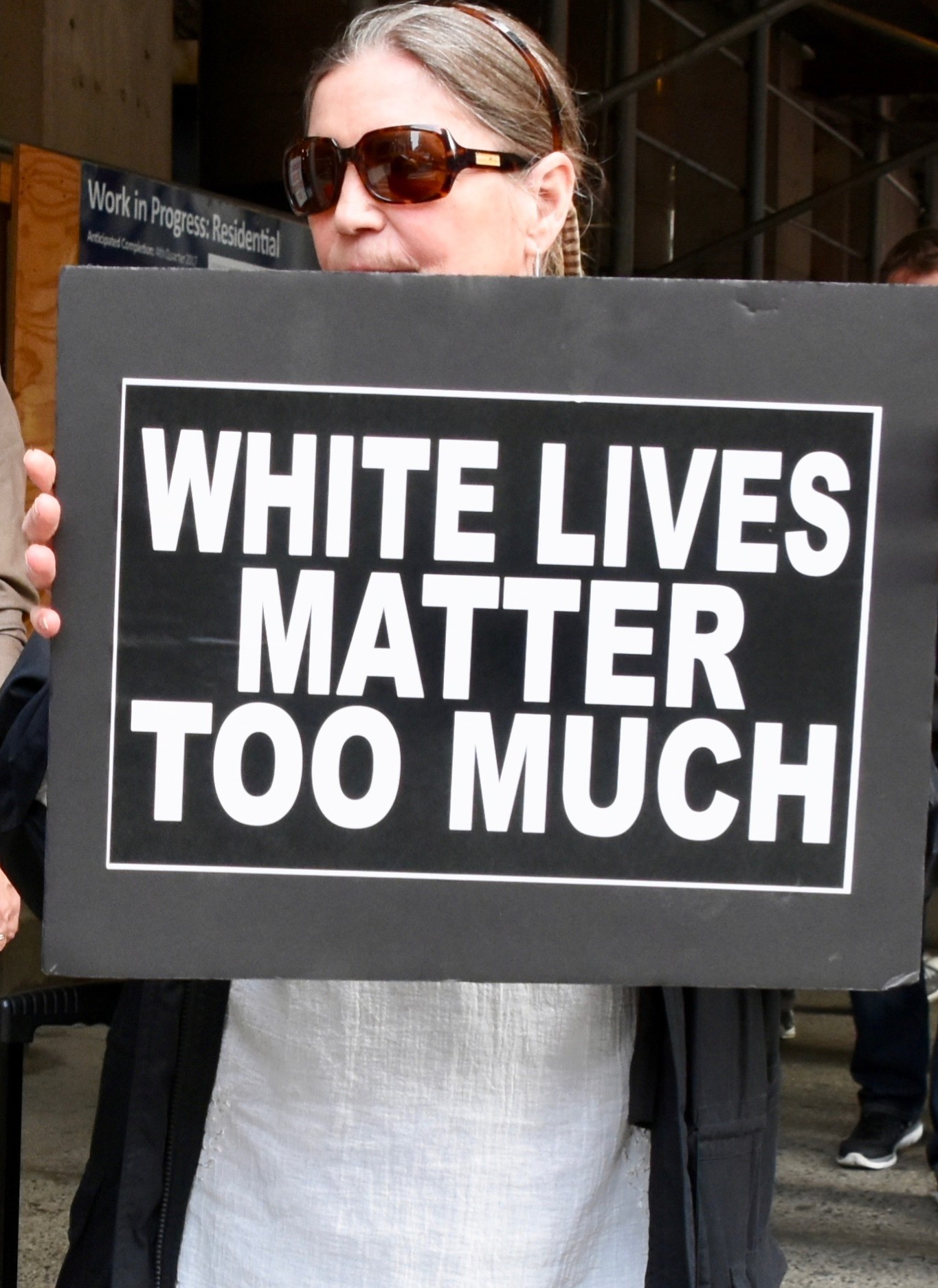




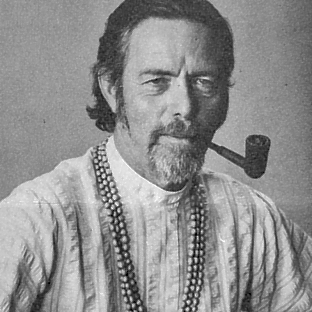
.jpg)




.jpg/440px-Recep_Tayyip_Erdo%C4%9Fan_2021_(cropped).jpg)

.jpg)
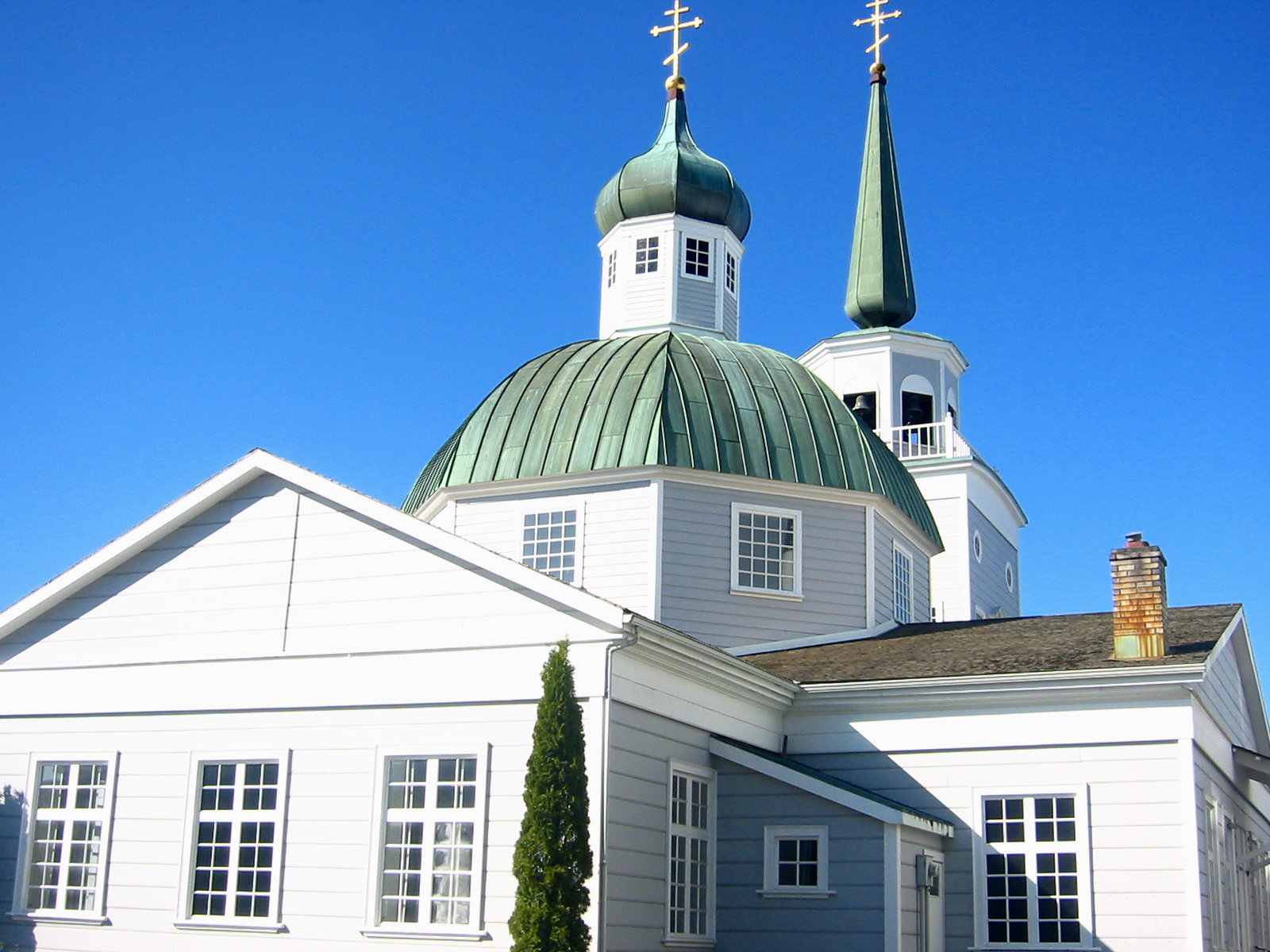

.jpg)
.jpg)







.jpg)
